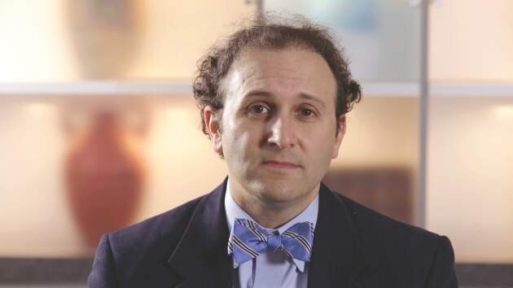
Cleveland Clinic, named the no. 2 hospital in the world in 2021, has said it will not administer Aduhelm
Credit: HealthMonitor via Wikipedia
In the wake of the hotly debated FDA approval of the Alzheimer’s drug aducanumab (Adulem), two major U.S. health systems, Cleveland Clinic and Mount Sinai in New York, have issued statements that they will not give the drug to their patients at this time. Citing concerns over the drug’s safety and efficacy as well as the process by which the medication was granted FDA approval, the statement from Cleveland Clinic said, in part: “Based on the current data regarding its safety and efficacy, we have decided not to carry aducanumab at this time.” A spokesperson for the clinic added that participating physicians were free to prescribe the drug, but the hospital would not administer it.
Dr. Sam Gandy, a professor of psychiatry and neurology and the director of the Mount Sinai Center for Cognitive Health, echoed Cleveland Clinic’s concerns. Citing the likelihood of a federal investigation into the approval process and the FDA’s relationship with Aduhelm’s manufacturer, Biogen, he said:
“Aduhelm will not be considered for infusion into patients on any of [Mount Sinai’s] campuses until and unless” an investigation by the inspector general of the Department of Health and Human Services “affirms the integrity of the F.D.A.–Biogen relationship and goes on to reaffirm” the basis for approving the drug.
The refusal by two of the country’s most prestigious health systems to carry the controversial new Alzheimer’s drug comes as a stark rebuke of a process that has been undergoing scrutiny since Aduhelm was granted approval on June 7, 2021. Immediately following the FDA’s announcement that the drug had been approved, three FDA advisers resigned from the independent advisory panel that reviewed Biogen’s data. That 11-member panel had overwhelmingly rejected the drug last November, stating that there were “inconsistencies” in the evidence regarding the drug’s safety and efficacy. Nonetheless, FDA director of neuroscience Dr. Billy Dunn claimed at the time that “the evidence supporting its approval appears strong.”

Dr. Aaron Kesselheim was one of three FDA advisors to resign over the approval of the new Alzheimer’s drug Aduhelm.
Credit: Global Strategy Lab
In a statement following his resignation, panel member Dr. Aaron Kesselheim, a professor of medicine at Harvard Medical School and Brigham and Women’s Hospital, said, “This might be the worst approval decision that the F.D.A. has made that I can remember.” He cited numerous red flags that the advisory panel had identified, “starting from the fact that there’s no good evidence that the drug works.”
A Hefty Price Tag and Safety Concerns
Biogen’s projected cost for Aduhelm, which is administered via intravenous infusion once a month, is $56,000 per patient per year, a cost that could add up to billions of dollars and strain Medicare to the breaking point if the drug were widely prescribed. Patients receiving Aduhelm would also need to undergo periodic MRI scans of their brains to detect two potentially serious side effects, swelling and bleeding in the brain.
The FDA initially approved Aduhelm for all Alzheimer’s patients, despite there being no evidence of its effectiveness in patients with advanced disease. But on July 8, Biogen issued new prescribing guidelines, stating:
“Treatment with ADUHELM should be initiated in patients with mild cognitive impairment or mild dementia stage of disease, the population in which treatment was initiated in clinical trials. There are no safety or effectiveness data on initiating treatment at earlier or later stages of the disease than were studied.”
Still, the medical community seems unconvinced. And with a Congressional investigation just beginning, it seems unlikely that Aduhelm will be reaching many patients any time soon.

 Controversy Continues Over New Alzheimer’s Drug Aduhelm
Controversy Continues Over New Alzheimer’s Drug Aduhelm




 Composting Bodies Is Now Legal in a Dozen States
Composting Bodies Is Now Legal in a Dozen States














